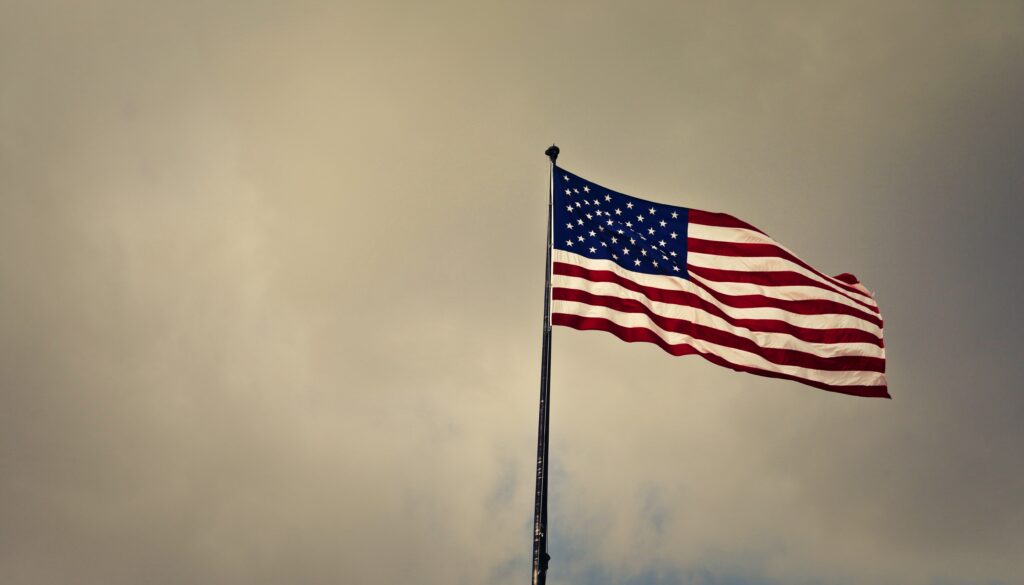
A pastor friend of mine witnessed to five young adults last week in Austin, Texas—one of America’s largest cities—and not one of them had ever heard of John 3:16. This is still surprising but it shouldn’t be because we’ve witnessed the secularization of culture accelerating for years.
In fact, according to some informed observers, “If you’re trying to predict the future religious landscape in America…the question is not whether Christianity will decline, it’s how fast and how far.” Isn’t the evangelistic need in our nation and our commitment to fulfill the Great Commission a compelling combination of reasons to pray for America?
It may surprise some to learn that pastors are often unclear about the appropriate balance needed when mixing patriotism with a worship service. In fact, this year a majority of churches will acknowledge the 4th of July in worship services, with patriotic music and by recognizing members of the military, but a majority of pastors also worry their congregations love America more than they love God.
Regardless of any hesitations they may feel about the addition of patriotic celebrations in church, pastors can seize the moment afforded by our national holiday as an opportunity to pray for our country. Here are three scriptural principles for praying for the nation.
Paul wrote to Timothy about how to pray for “kings and all those in authority” (1 Timothy 2:1-2). That instruction is a good comparable for any of us who are called to pray for our nation and its leaders.
LEAD WITH PRAYER
Paul said , “First of all, then, I urge that supplications, prayers, intercessions, and thanksgivings be made for all people” (v.1). It is generally accepted that Paul was describing how to pray in a worship setting. When the church gathers for worship Paul said, “First…supplications, prayers, intercessions…” should lead the service. In other words, praying for America is a priority rather than a secondary part of your patriotic celebration. The 20th century devotional writer Oswald Chambers once said, “We pray when there’s nothing else we can do, but God wants us to pray before we do anything at all.” Pray with boldness and set the tone of your service by seeking God.
PRAY WITHOUT PARTISANSHIP
How can I pray for leaders I disagree with politically? Our polarized culture has pushed us to our respective corners like competitors in a perpetual heavyweight bout. Perhaps understandably, some believers find it somewhat spiritually incongruent to pray for a leader who probably won’t live up to the ideals expressed on their behalf by our prayers. We do advantage of democracy not available in the biblical world. We can choose our leaders. Timothy had no such luxury. He had no choice about who would lead the Roman Empire or who he was called to pray for. Yet, he did pray for “kings and all those in authority.” Actually, quite often we don’t choose our leaders either. Often, the “other guy” wins. Still, regardless of politics, we are called to pray for those who lead us. One way we express both our Scriptural admonition to pray, and our 1st amendment rights, is by publicly praying for those who lead us even when we adamantly disagree with their politics.
PRAY WITH EVANGELISTIC PURPOSE
Paul explained to Timothy why believers should pray for their leaders and their nation. Prayer helps create opportunities for evangelism. Paul said it like this,
“This is good, and it is pleasing in the sight of God our Savior, who desires all people to be saved and to come to the knowledge of the truth.”
1 Timothy 2:3-4
Our nation needs praying churches because God wants to save the people we’re praying for. Never forget your prayers are heard by a merciful, loving, saving God who still saves in response to prayer. The 19th century evangelist D. L. Moody once reminded us that, “Every great movement of God can be traced to a kneeling figure.” In other words, God hears and answers prayer.
So wave the flag, sing the national anthem, honor the veterans, but always remember to pray for America.















